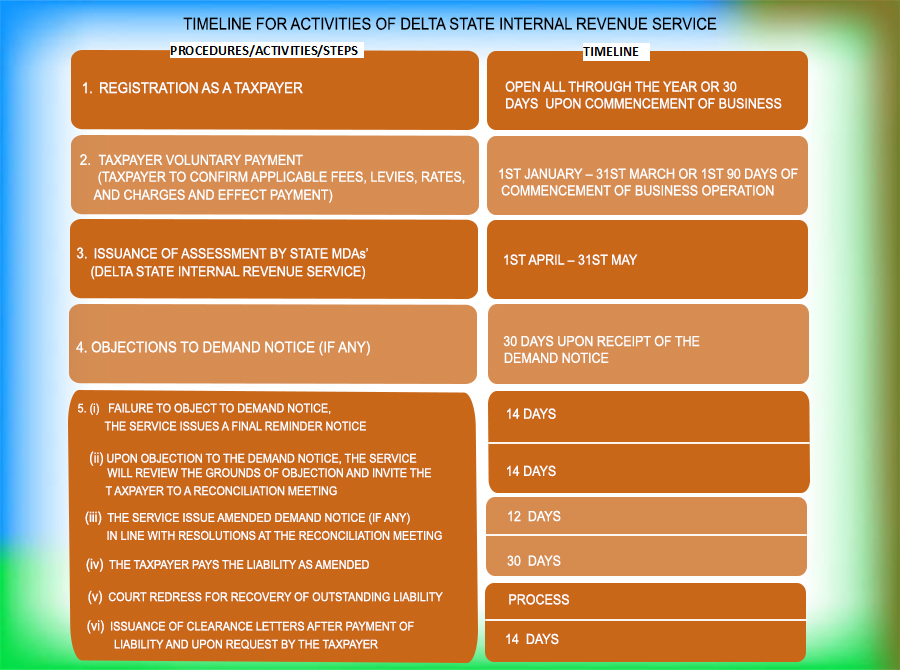VARIOUS TAX TYPES IN NIGERIA
Under current Nigeria law, taxation is enforced by the 3 tiers of Government, i.e. Federal, State, and Local Government with each having its sphere clearly spelt out in the Taxes and Levies (approved list for Collection) Decree, 1998. In the Nigerian Federation, the National Assembly is empowered by S.4(3) of the Constitution of the Federal Republic 1999, to make for the Federation in respect of the Federal in respect of matters included in the exclusive legislative list to the exclusion of the Houses of Assembly of the State. In furtherance of its powers, the Legislature enacted the following into law at various times:
- Personal Income Tax Act-Cap P8 Vol. 13 LFN 2004
- Companies Income Tax Act-Cap C21, Vol. 3 LFN 2004
- Stamp Duties Act-Cap S8 Vol. 14LFN 2004
- Value Added Tax-Cap V1 Vol. 15 LFN2004
- Petroleum Profit Tax-Cap P13 Vol. 13 LFN 2004
- Capital Gains Tax-Cap C1 Vol. 2 LFN 2004
- Customs Duties-Cap 45 Vol. 4 LFN 2004
- Excise Duties-Cap 45 Vol. 4 LFN 2004
The imposition or assessment of a tax is the means by which the government sources for the revenue required for its activities. This is usually, by the way a monetary charge imposed by the government on persons, companies, transaction or properties to yield revenue. The division of taxing powers in a country invariably depends on the system of the government, whether it is federal or unitary. Nigeria runs a federal system of government.
The Federal Government, under President Goodluck Jonathan administration, through the Minister of Finance and Coordinating Minister of Economy, Dr. Ngozi Okonjo-Iweala, on May 26, 2015, amended the Taxes and Levies (approved List for Collection) Act, Cap. T2, Laws of the Federation of Nigeria, 2004. The Act was previously referred to as Taxes and Levies (Approved List for Collection) Decree, No. 21 of 1998.


